A Chance to Avert Tragedy
So now we know that pilots responsible for the safety of about a quarter of the flying public rest up for duty by catching a few winks in an airport lounge, or sleeping in idle aircraft or aboard a cross-country flight from their hometowns to their airport home base.So now we know that pilots responsible for the safety of about a quarter of the flying public rest up for duty by catching a few winks in an airport lounge, or sleeping in idle aircraft or aboard a cross-country flight from their hometowns to their airport home base.
The copilots who provide the only backup to these weary sky warriors have similar sleep and commuting schedules — and earn a bit more than someone who works full time in a fast-food restaurant.
The initial inquiry into the causes of February’s crash of a Continental Connection commuter flight outside Buffalo has exposed a seamy — and exceedingly unsafe — underside of the burgeoning commuter airline business, now responsible for about half of all domestic airline flights. That is how it always is with airline crashes. We are shocked and stunned not only at the loss of life on a routine trip, but at the staggering lapses in common sense and basic oversight that so often seem to be connected with them.
We expect, of course, that federal authorities who are so expert at piecing together the causes of these rare but tragic events will prevail upon their sister agencies to upgrade rules and enforce them. Except they sometimes don’t.
A crucial question now before Congress is whether it will finally mandate stricter oversight of aircraft maintenance operations that, slowly but surely over the last three decades, have been outsourced to contractors and subcontractors — at times beyond the effective reach of Federal Aviation Administration inspectors.
First, when a ValuJet plane with 110 people aboard crashed after takeoff in Miami in 1996, and again in 2003 when a US Airways Express commuter flight carrying 21 passengers and crew crashed after takeoff from Charlotte, federal transportation investigators identified lax oversight of equipment maintenance and other duties performed by contractors (rather than the airlines themselves) as a key cause of the accidents.
So what’s changed? Not very much.
The Transportation Department’s inspector general reported last September that major U.S. airlines continue to outsource maintenance work, that the practice is growing and that essential maintenance work by overseas contractors is a growing portion of repair operations. Foreign repair stations completed 27 percent of heavy airframe maintenance checks outsourced in 2007, the inspector general said, compared with 21 percent in 2003. The foreign plants are concentrated in Mexico, Central America and Asia. Within the United States, FAA-certified repair facilities are supplemented by noncertified plants.
“Which is worse, outsourcing domestically or outsourcing internationally?” says Linda Goodrich, an FAA safety inspector for 23 years and vice president of Professional Aviation Safety Specialists, the union representing inspectors. “The worse would be outsourcing internationally.”
The FAA cannot conduct unannounced inspections of foreign plants — as it does domestically — since inspectors need permission to enter a country, and often must report how long they will be at a plant and whom they will see. Unlike domestic maintenance workers, who must undergo periodic drug and alcohol testing and meet certain requirements that, in effect, license them to work, these controls are not imposed on foreign plants unless the home country requires them. “The standards are different,” Goodrich says.
No one expects financially squeezed airlines to increase their costs by reverting to the system under which they performed maintenance themselves. Yet the looseness with which the airline industry — like so many others — has so often been regulated was documented in the 2008 Southwest Airlines’ maintenance scandal, exposed when FAA whistle-blowers came forward to say the low-cost carrier continued to fly planes that hadn’t passed muster.
After hundreds of aircraft operated by Southwest and other carriers were temporarily grounded, and millions of dollars in fines imposed, the glare of publicity has predictably shifted. No doubt it will shine on the airlines again if there is a crash that turns out to be caused by shoddy maintenance that underwent too-light surveillance. “That would be disastrous, if we’re waiting for bodies to prove that we’re right,” Goodrich says.
The FAA reauthorization bill moving through the House would tighten inspection requirements for maintenance facilities abroad and impose drug and alcohol testing on employees at foreign maintenance centers who work for American carriers. The Senate is considering similar steps.
Congress is always much better at exploiting tragedies than preventing them. It has a rare opportunity, this time, to reverse that.
Marie Cocco’s e-mail address is mariecocco(at)washpost.com.
© 2009, Washington Post Writers Group
Your support matters…Independent journalism is under threat and overshadowed by heavily funded mainstream media.
You can help level the playing field. Become a member.
Your tax-deductible contribution keeps us digging beneath the headlines to give you thought-provoking, investigative reporting and analysis that unearths what's really happening- without compromise.
Give today to support our courageous, independent journalists.
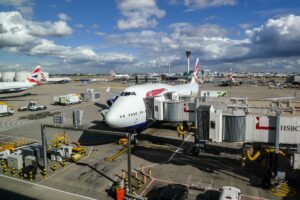
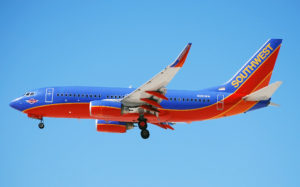

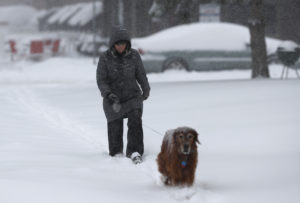
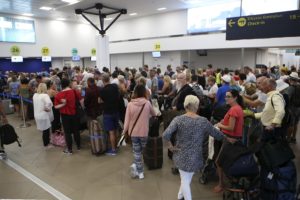
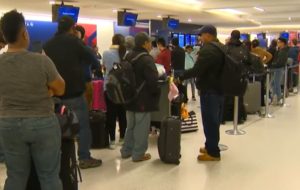
You need to be a supporter to comment.
There are currently no responses to this article.
Be the first to respond.